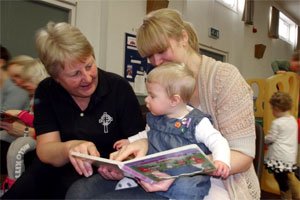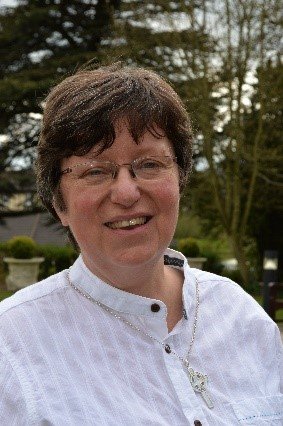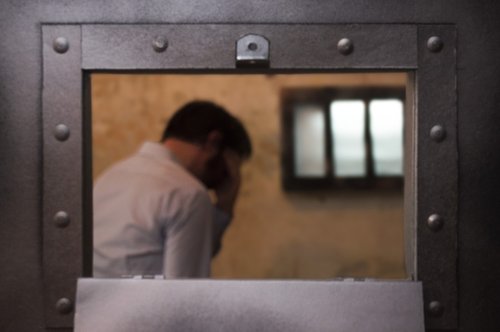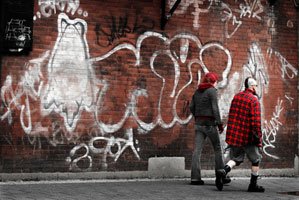Diaconal ministry is incredibly varied. There are no two appointments quite the same, so it is not easy to give a definitive description of what a deacon will do. However it is likely to be people centred, encouraging, enabling, supporting and pastoral in nature.

The role may be public leading worship, facilitating groups and being actively involved in the life of the Church, or very private dealing with people one to one, or out in the community. The needs of the Church and community are matched with the gifts of the deacon alongside those which the presbyters and lay people also bring. Deacons are committed to working collaboratively wherever possible.
Deacons can be involved in worship, as preachers (if they are local preachers), worship leaders, or sharing within the service, readings, prayers etc.
Some are chaplains to hospitals, hospices, universities, uniformed groups, prisons, schools, farming communities.
Many are involved in training, youth work, supporting community projects, teaching (as in Bible study and membership exploration).
The skills and opportunities offered by the work of a deacon will cover service, worship, evangelism and learning and caring. Deacons try to live out in their personal and spiritual lives what they do in their practical work; they are committed to offering a model of Christian service as they seek to support and fulfil the needs of the church and community they are appointed to serve.
Diaconal ministry can be the catalyst to exploring dreams and visions for the church and community. Deacons can enable the gifts and graces of the local people to be released and encouraged as together they dis-cover, explore, share, enable and seek to understand their faith journey and their part in the Kingdom of God.
Download the "What is a Deacon" report here.

Deacon Story - Being in Community
I remember reading Barbara Glasson’s Mixed Up Blessing as I started my journey towards candidating for Methodist ministry. Barbara reflects on being sent to Liverpool city centre, and how she spent a year watching and listening to the rhythm of the city and its people, before she could begin to discern what God was calling her to do.
Read the rest of Deacon Jenny Jones' story here.
Retail chaplaincy
Retail chaplaincy comes in many forms, including town and city centres, shopping centres, superstores and supermarkets. I am chaplain to a large shopping centre and really enjoy the experience. The role includes being a pastor to the shopping centre staff, shop owners, their staff and the general public who spend their leisure time shopping. I also conduct worship in the centre at the major Christian festivals and special events like Remembrance Day and September 11th. The type of worship we offer is a mixture of traditional and contemporary and can be held in the main atrium or in coffee bars.
being available for people are important parts of this 'presence' ministry
A normal morning would include going to the centre office to let the centre management know I am in the building and spending some time in conversation with them. I then walk round the centre talking to the car park staff, cleaners, shop owners and their staff. Enjoying coffee in one of the cafes or coffee bars and generally being available for people are important parts of this 'presence' ministry. Because of building some good relationships there, I've conducted several rites of passage for people associated with the centre - at one of our churches or crematorium.
Being a retail chaplain is a wonderful opportunity to connect with the local community and keep in contact with the issues that people are facing both in their working lives and when enjoying their leisure time.
Bereavement support in prison

One deacon has a listening ministry to the bereaved in prison and to those who have to come to terms with the grief they experience because of the crime they have committed. It is a ministry that gives opportunity to work God at the cutting edge.
Through the prison chaplaincy, the deacon is also involved in a weekly group meeting offered to all inmates, where some discover the 'unconditional love of God' through a therapeutic process, and a belief that all life is sacred, their own included.
All this work takes place within the context of 'a multifaith chaplaincy' offered to inmates and officers in a system where security and safety is first priority.
Holidays for the elderly
A project providing short five day holidays has been developed by one deacon for the elderly who are living alone or recently bereaved. It is open to members of the circuit and those connected with the circuit. Each group consists of six elderly people with three carers and a minibus driver.
As well as assisting on the holidays, the deacon has to manage the whole project, devise itineraries and obtain ongoing funding.
Supporting the community
'The multi-agency resource centre where I spend some of my time is based on the local Council Housing Estate in five former shops:
*The Family Centre supports parents, runs before and after school clubs and offers courses such as parenting, food hygiene and first aid.
*The Learning Centre offers a wide variety of free computer courses.
*The Advice Centre hosts such groups as CAB (Citizen Advice Centre), Relate and Age Concern and the police hold a weekly surgery.
*The Healthy Living Centre also holds courses in the premises.'
Sharing God with others

'Being a deacon in uniform can put me in a privileged position that prompts the churched and unchurched to speak of their experience of God. Arising out of this have been requests for Wedding Anniversary Blessing Services, and leading quiet reflective prayers as ashes are scattered on the sea.
Visiting and pastoral care 'For me the role of pastoral care is one of the most fulfilling parts of my call and ministry as a deacon. It is as varied as each appointment. To be alongside people in hospital, at a time of bereavement, in the home, in joy or sorrow, sharing in conversation and prayer, is a privilege and responsibility.
'The challenge of outreach visiting which opens doors for reaching underprivileged, the homeless and those with specific needs, means I often have to liaise with statutory bodies and other agencies, showing that we, and the church, care.'
'In a busy holiday club I have been able to help adults and children to express their faith using silence and reflective prayer. This helps both parents and children to be in touch with their own spirituality outside the structure of Sunday worship. This approach is often less formidable for the unchurched and those whose experience of liturgical worship is a faint memory.'
Sowing seeds in local churches
A deacon working in two churches writes: 'There are many facets to the work: prayer and healing ministry, families and children, parenting courses and chairing a pre-school management committee, leading a Disciple course, preaching and pastoral work, and helping with music. A lot of time is spent working with children in two churches. The smaller church is on the edge of a densely populated area, with many families and people in need. The children have no knowledge of the Bible or its familiar stories. We start from scratch to help them understand God's love for them. They are slowly learning about God and Jesus. It is hard work at times, but seeds are being sown.'
A sense of 'being' in the city

On the way out of a city, there is a housing estate with all the problems you would expect to find on an inner-city estate and a few more beside. A deacon appointed as a community development worker there writes: 'How do you make a difference in such place? What can we do? The 'What can we do?' was part of the problem. She realised that she was being none too gently led out of the 'doing' culture into a state of 'being'. Being a presence without striving to 'do' meant God's agenda was being attended to, not a human one. This has meant listening carefully and being alert to all kinds of possibilities - finding the kingdom right under one's nose (the treasure in the field). It is a difficult appointment with no secure funding, no base, and a feeling that at times you are plaiting with fog, but the treasure is there.